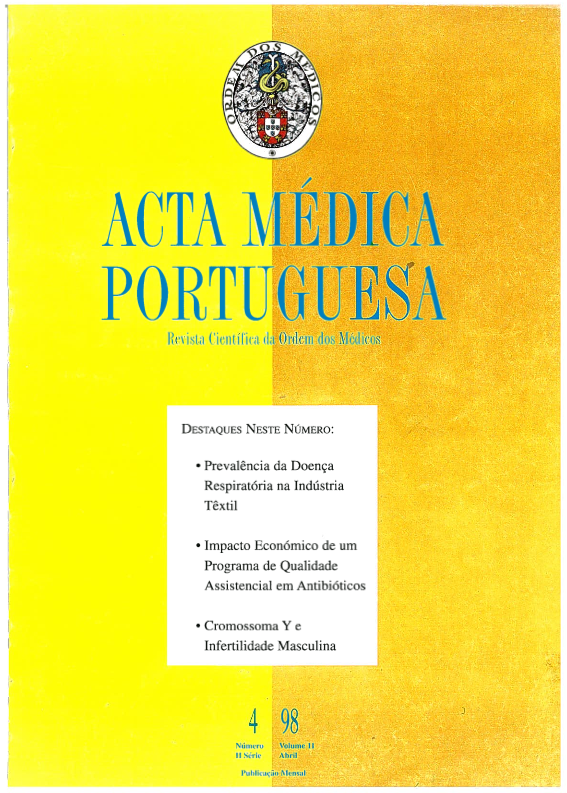Y chromosome and male infertility.
DOI:
https://doi.org/10.20344/amp.2239Abstract
Spermatogenesis is a complex physiological process characterized by an orderly proliferation and differentiation of germ cell types, from diploid spermatogonial stem cells to haploid spermatids, and after spermiogenesis to spermatozoa. It is known that male reproductive capacity is deficient in about one half of infertile couples. Effective treatment is available only for a small fraction of these infertile men. In most cases, the cause of male infertility is unknown. Aetiologically, male infertility may result from genetic and non-genetic causes. Among the genetic factors known to disturb spermatogenesis, chromosomal aberrations, involving autosomes and/or sex chromosomes, are well known. However, molecular genetic causes of idiopathic male infertility have been accumulating in the last years, predominantly for the Y chromosome. Localization of genes that control spermatogenesis on Yq11 was first proposed, on cytogenetic evidence, by Tiepolo and Zuffardi in 1976. Since then, many subsequent reports using molecular genetics methods have supported the initial proposal by detecting submicroscopic interstitial deletions on Yq11, present in patients with idiophatic azoospermia and a cytogenetically normal Y chromosome. Recently, four spermatogenesis candidate Y-linked genes (or gene families), RBM, DAZ, SPGY and TSPY have been cloned and characterized. In the euchromatic Y chromosome long arm three intervals--AZFa, AZFb and AZFc--were also defined. All of them may contain genes necessary for normal spermatogenesis. All the four genes have a testis-specific expression and three of them (RBM, DAZ and SPGY) code for ribonucleoproteins with a single RNA recognition motif. Candidate genes with in AZFb are some members of the RBM gene family and within AZFc are the DAZ and SPGY gene family. While AZFc deletions are associated with azoospermia or with severe oligoteratoasthenozoospermia, microdeletions involving AZFa or AZFb cause azoospermia only.Downloads
Downloads
How to Cite
Issue
Section
License
All the articles published in the AMP are open access and comply with the requirements of funding agencies or academic institutions. The AMP is governed by the terms of the Creative Commons ‘Attribution – Non-Commercial Use - (CC-BY-NC)’ license, regarding the use by third parties.
It is the author’s responsibility to obtain approval for the reproduction of figures, tables, etc. from other publications.
Upon acceptance of an article for publication, the authors will be asked to complete the ICMJE “Copyright Liability and Copyright Sharing Statement “(http://www.actamedicaportuguesa.com/info/AMP-NormasPublicacao.pdf) and the “Declaration of Potential Conflicts of Interest” (http:// www.icmje.org/conflicts-of-interest). An e-mail will be sent to the corresponding author to acknowledge receipt of the manuscript.
After publication, the authors are authorised to make their articles available in repositories of their institutions of origin, as long as they always mention where they were published and according to the Creative Commons license.









